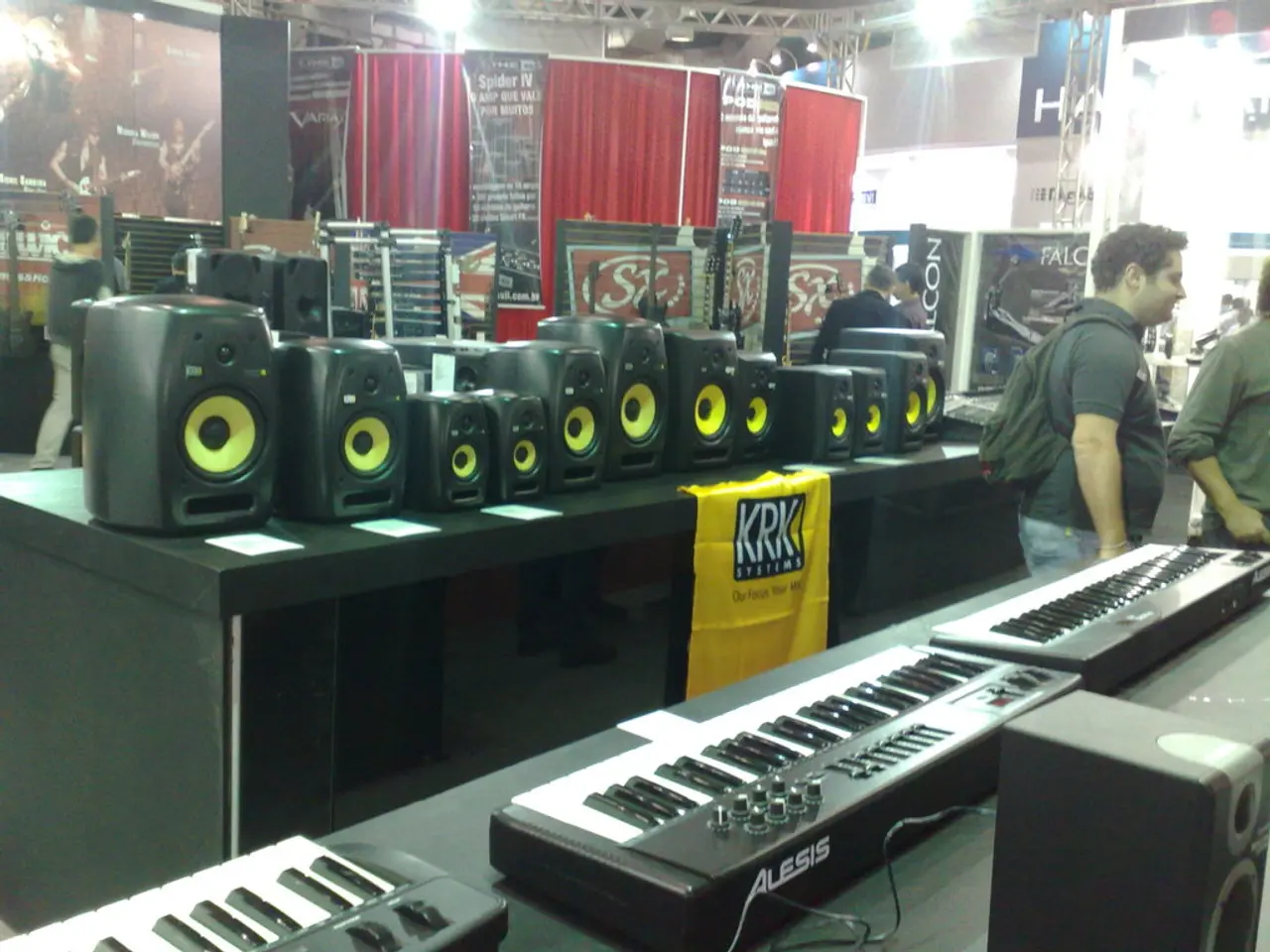Rich Asian Investors Ditch US Markets Over Trump Trade Policies
Wealthy Asians express anxiety over potential Trump presidency
In a surprising move, wealthy Asian families are slashing their investments in the US, citing Trump's trade policies as the main culprit. This shift in investment could potentially funnel billions into other sectors worldwide. Europe might even reap some benefits from this financial reshuffle.
Historically, the US financial markets have been a safe haven for Asian investors. Their size, dynamism, and the stability of the dollar made them attractive investments. However, a recent Bloomberg report reveals a change in attitude. Some of the wealthiest families in Asia are now cutting back on their US investments. One family office managing assets for Chinese billionaires has even withdrawn completely from its US holdings, planning to transfer funds to the Asian market instead.
The Rich Fleeing Trump's Economy
Clifford Ng, a managing partner at the law firm Zhong Lun in Hong Kong, advising the ultra-wealthy, confirms this trend. He attributes this shift to the uncertainty created by Trump's anti-trade stance, a stark contrast to the expectation of a deal-making president.
Similar sentiments are echoed by Henry Hau, the CEO of the Hong Kong-based Infinity Family Office. He shares that some families are contemplating reducing their US investments by 20-30%, favoring investments in China and Europe instead. While the extent of this capital shift is yet to be determined, US assets still make up a significant portion of many portfolios, with some family offices choosing to maintain a watchful approach rather than bail out immediately.
Trump's Economic Policy: A False Start?
The US economy had experienced unexpected contraction in early 2025, further fueling the doubts about Trump's economic policy. The imposition of reciprocal trade tariffs and criticisms of the Federal Reserve have impacted the US's appeal as a safe haven for Asian investors.
The narrative of "US exceptionalism" in asset safety has been replaced with skepticism and concerns of a "US repudiation." In response to these developments, some of Asia's wealthiest families have expressed frustration and are redirecting their investments away from US equities, citing trade tensions as their primary reason.
The New Investment Frontier: Asia
As a consequence, Asian real estate markets are gaining favor as a safer alternative. For instance, Singapore's housing market, known for its stability and subsidies, has emerged as a popular destination. The relative resilience of these markets against inflation and economic shocks caused by protectionism makes them attractive alternatives to US investments.
In conclusion, Trump's trade policies and tariffs have precipitated a noticeable reallocation of capital among Asian ultra-wealthy investors away from US equities and financial assets and toward Asian real estate markets and other alternatives, perceived as safer amid trade-related instability. This shift represents a loss of confidence in US markets as a secure investment haven during this period.
Sources: ntv.de, jki
- Trump
- Investors
- Wealth
- Trade Conflicts
Enrichment Data:
There's evidence that Asian ultra-high-net-worth individuals (UHNWIs) have been moving capital away from US assets due to Trump's trade policies and tariffs. Key points from recent analyses include:
- The imposition of reciprocal trade tariffs by the Trump administration, coupled with criticisms of the Federal Reserve, have diminished the appeal of US financial assets as a safe haven for Asian investors.
- Asian UHNWIs have expressed frustration and are redirecting their investments away from US equities, attributing their decisions to the tariff-related uncertainties and trade tensions during Trump's tenure.
- The capital shift is towards Asian real estate markets, seen as more resilient and offering better protection against inflation and economic shocks brought on by protectionism. For example, Singapore's housing market has emerged as a favored destination due to its stability, government subsidies, and strong domestic demand.
- Quantitative measures of the capital outflow are yet to be detailed in the available sources, but the consensus suggests a significant shift in sentiment among Asian UHNWIs to reduce exposure to US assets in favor of Asian alternatives, especially in real estate sectors less vulnerable to trade disruptions.
- The shift in attitude among wealthy Asian families is leading to a reduction in investments in US markets, with Trump's trade policies identified as the primary cause.
- Clifford Ng, a managing partner at Zhong Lun in Hong Kong, confirms that many ultra-wealthy families are moving their investments away from the US due to the uncertainty created by Trump's anti-trade stance.
- Henry Hau, the CEO of the Hong Kong-based Infinity Family Office, reports that some families are considering reducing their US investments by 20-30%, preferring investments in China and Europe instead.
- The US economy experienced contraction in early 2025, further fueling doubts about Trump's economic policy, with the imposition of reciprocal trade tariffs and criticism of the Federal Reserve affecting the US's appeal as a safe haven for Asian investors.
- The capital shift among Asian ultra-high-net-worth individuals (UHNWIs) is towards Asian real estate markets, such as Singapore's housing market, which is regarded as a safer alternative due to its stability, government subsidies, and strong domestic demand.




